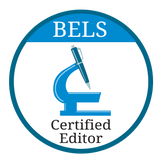|
Is the title of your scientific journal article the first thing you write or the last? The title is the first thing readers see, and it may be what leads them to download your full article. Before you submit your paper to a journal for review, take another look at the title and consider the following best practices. Keep It Short Some studies of paper citations looked at the length of article titles. The findings suggest that articles with shorter titles are cited more. The optimal title length seems to be between 10 and 15 words (or 31 to 40 characters). Also consider the guidelines of the journal to which you are submitting. The journal may have a very specific word or character limit. Use Key Words Here’s a great tip from the TAA (Textbook & Academic Authors Association) Blog: if you were to do a database search for your article, what key words would you type in? Your article title should include those key words. This will help interested readers find your research. Other questions to ask yourself when writing drafts of the title:
It’s important to include the name of the species or model in the title. Including this important detail may help to improve science communication. A study by Triunfol and Gouveia in PLoS Biology reported that when an article’s title omitted the species in which the study was done, headlines of news stories about the article tended to omit this vital piece of information as well. Also, include details of the research design in the title. Some journals will specify in their guidelines that the title should include mention of the research design. This detail could be included as a subtitle. Avoid Questions and Declarative Sentences Although a question may be appropriate for an editorial or commentary, writing the title as a question is generally frowned upon for research manuscripts. One study suggested that articles with question marks or exclamation points in the title are cited less frequently. Concerning declarative sentences, both the AMA Manual of Style and the guidelines of several journals discourage authors from writing titles as declarative sentences (eg, “Fibromyalgia Is Common in an Obesity Clinic”). The reasoning given in the AMA Manual is that declarative sentences tend to overemphasize a conclusion. (An alternate for the title above is “Prevalence of Fibromyalgia in Patients With Obesity.”) Other Best Practices Don’t use abbreviations in article titles. Following the same logic as in the recommendation to use key words, if you use abbreviations and jargon specific to your field, the online searches of people from other fields may not uncover your article. Do take one last look to ensure that the title is grammatical, spelled correctly, and punctuated correctly. If you’re struggling with the title of your paper, let me know when you send your paper to me for editing. I’ll be happy to suggest a few titles for your consideration. Sources |
AuthorJennifer Holmes Archives
January 2023
|

